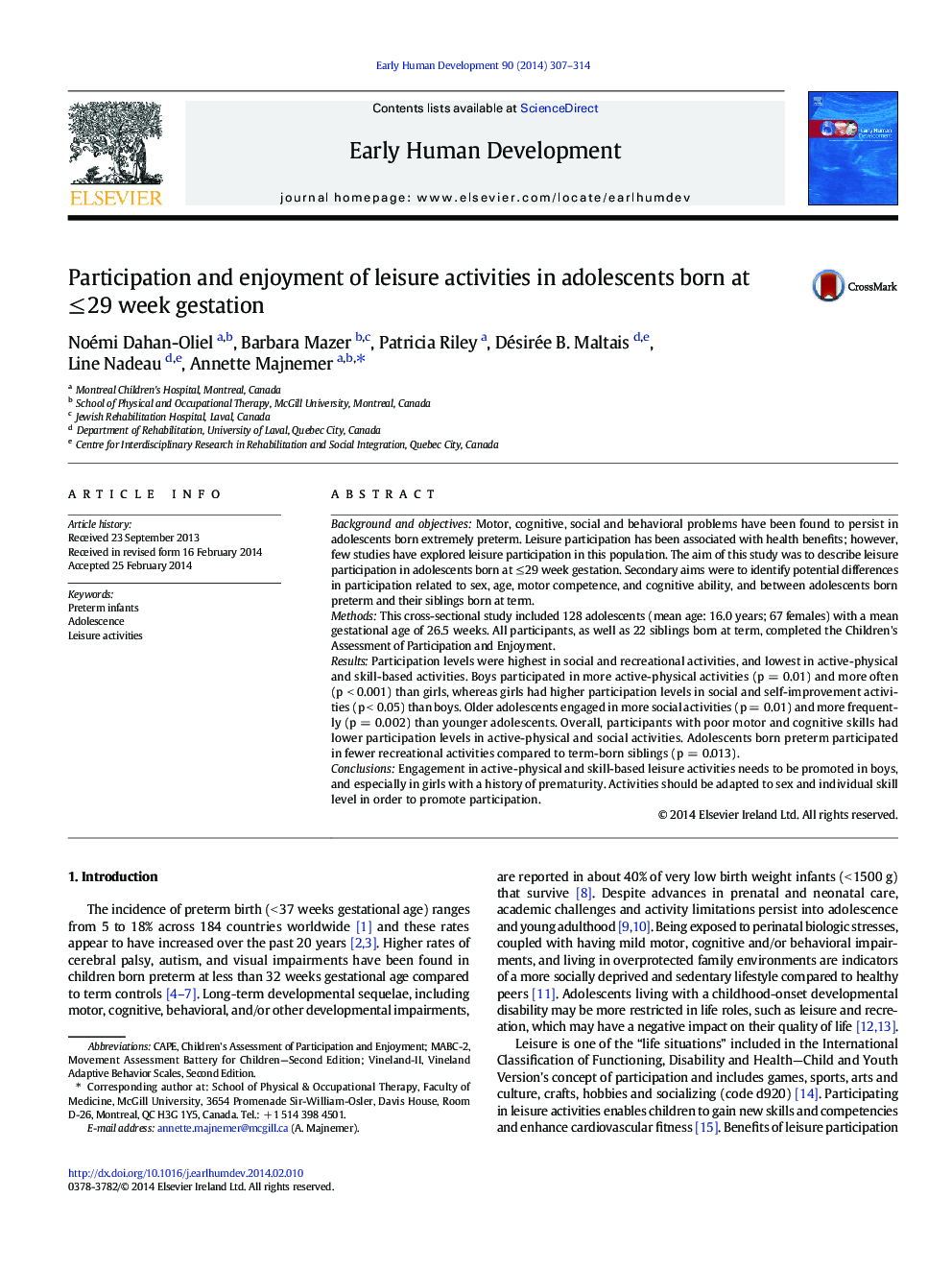| Article ID | Journal | Published Year | Pages | File Type |
|---|---|---|---|---|
| 3917054 | Early Human Development | 2014 | 8 Pages |
Background and objectivesMotor, cognitive, social and behavioral problems have been found to persist in adolescents born extremely preterm. Leisure participation has been associated with health benefits; however, few studies have explored leisure participation in this population. The aim of this study was to describe leisure participation in adolescents born at ≤ 29 week gestation. Secondary aims were to identify potential differences in participation related to sex, age, motor competence, and cognitive ability, and between adolescents born preterm and their siblings born at term.MethodsThis cross-sectional study included 128 adolescents (mean age: 16.0 years; 67 females) with a mean gestational age of 26.5 weeks. All participants, as well as 22 siblings born at term, completed the Children's Assessment of Participation and Enjoyment.ResultsParticipation levels were highest in social and recreational activities, and lowest in active-physical and skill-based activities. Boys participated in more active-physical activities (p = 0.01) and more often (p < 0.001) than girls, whereas girls had higher participation levels in social and self-improvement activities (p < 0.05) than boys. Older adolescents engaged in more social activities (p = 0.01) and more frequently (p = 0.002) than younger adolescents. Overall, participants with poor motor and cognitive skills had lower participation levels in active-physical and social activities. Adolescents born preterm participated in fewer recreational activities compared to term-born siblings (p = 0.013).ConclusionsEngagement in active-physical and skill-based leisure activities needs to be promoted in boys, and especially in girls with a history of prematurity. Activities should be adapted to sex and individual skill level in order to promote participation.
